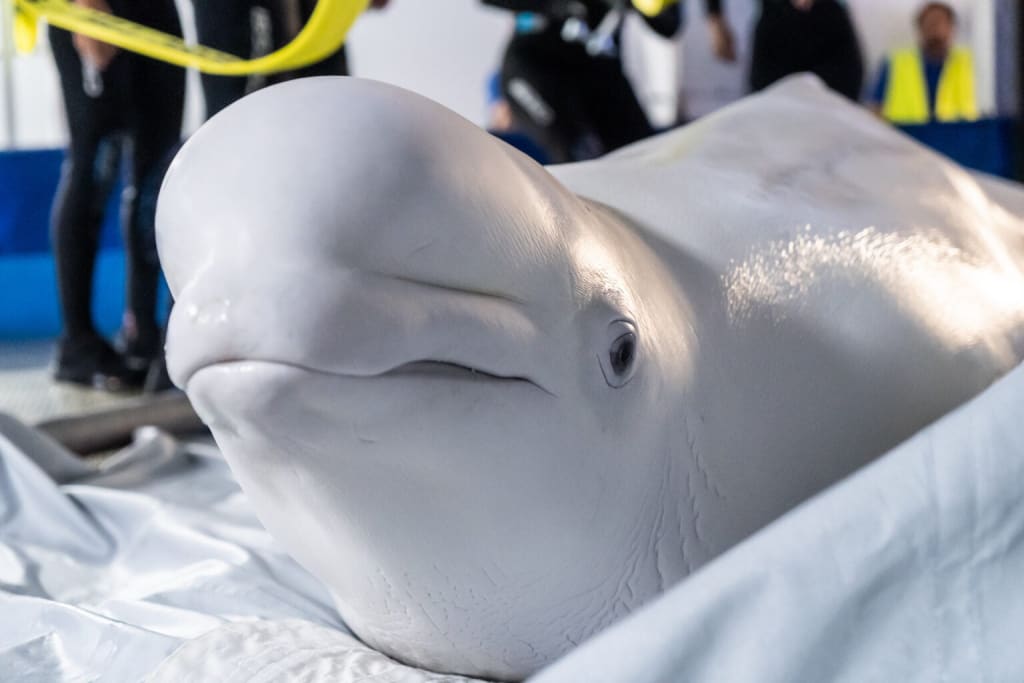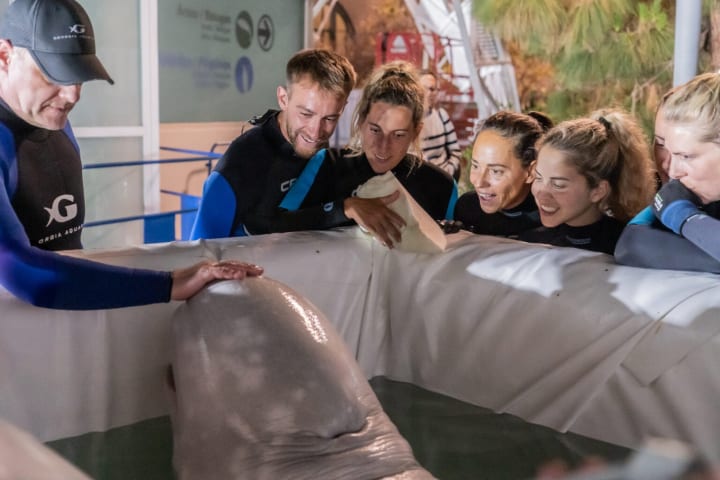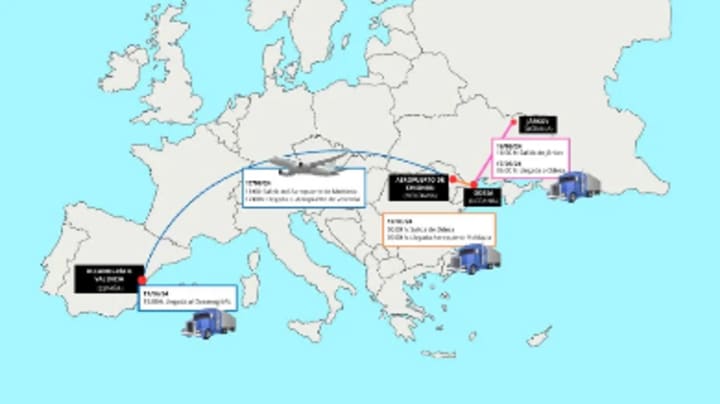Content warning
This story may contain sensitive material or discuss topics that some readers may find distressing. Reader discretion is advised. The views and opinions expressed in this story are those of the author and do not necessarily reflect the official policy or position of Vocal.
In a Joint Effort, American Marine Mammal Facilities Collaborate with Spanish Aquarium to Safeguard Belugas Amidst the Ukraine Conflict.
With the assistance of marine mammal care specialists from the United States and Spain, a Ukrainian marine mammal facility successfully evacuated its beluga whales from the conflict-ridden city of Kharkiv to Valencia, Spain, ensuring their safety and well-being.

Since the Russian invasion of Ukraine in 2022, many animals, both domesticated and exotic, have suffered the devastating effects of war. Many pets were left behind as their owners fled the country in search of safety across the border. Animal rescue organizations stepped in to save these abandoned animals, hoping to reunite them with their families or find new homes for them. Zoos and aquariums worked tirelessly to ensure the safety and well-being of their animals, some even making the tough decision to move them to other facilities. Kharkiv's NEMO Dolphinarium stands out as one such facility that went to heroic lengths to protect its animals.
Since the onset of the war two years ago, NEMO Dolphinarium has been engaged in courageous efforts to swiftly evacuate its animals, including seals, sea lions, and dolphins. However, the dolphinarium encountered a formidable challenge in transporting its two beluga whales, Plombir (15 years old) and Miranda (14 years old), because of their significant size and unique requirements. Consequently, the relocation process required extensive preparation and assistance from animal care experts from SeaWorld, Georgia Aquarium, and Oceanogragic de Valencia, spanning several months.

Prioritizing the health and safety of the two whales, the team encountered arduous conditions during their rescue mission. Rough roads, soaring temperatures, and navigating an active war zone presented significant challenges. Furthermore, the ongoing conflict hindered the dolphinarium's animal care team from adequately providing for the whales' needs, jeopardizing their survival amid the turmoil. Consequently, relocation became the only viable option to safeguard their well-being.

The arduous journey began with a treacherous 12-hour drive from Kharkiv to Odesa, where the whales' Ukrainian caregivers would have to meet up with the international team. Upon arrival, the whales underwent swift health examinations before proceeding to the Moldova border. There, the European Anti-Fraud Office played a vital role in facilitating a speedy border crossing. Subsequently, the animals were carefully loaded onto a chartered plane in Chisinau, embarking on their onward flight to Valencia. On June 18th, they safely arrived at their destination in good health, marking the culmination of this demanding expedition.
Oceanografic Valencia, the largest aquarium in mainland Europe, stands out as the only marine mammal facility on the continent that provides a home for belugas. NEMO Dolphinarium chose this aquarium to serve as the new residence for its belugas because it was the closest facility in Ukraine that resembled a marine mammal conservation center. Oceanografic Valencia has received accreditation from the most stringent international organizations dedicated to animal welfare in zoos and aquariums. The Oceanographic team is filled with a sense of honor and privilege for having played a role in rescuing these two whales from the horrors of war, as their previous home in Kharkiv was situated just a few hundred meters from where bombs were being dropped.
At present, Oceanographic Valencia's team of medical, nutritional, and behavioral specialists is providing the belugas with the essential care they require helping them recover from the trauma they endured. Two Ukrainian caregivers are temporarily living in Spain to assist with their transition and provide care for a few weeks. As the belugas continue to heal and adapt to their new home, they are housed in separate areas of the beluga habitat that are not open to the public.
In response to the plight of animals, modern zoos and aquariums collaborate seamlessly. They assemble a dedicated team of experts and specialists who leverage their extensive wildlife care experience to facilitate rescues. The NEMO Dolphinarium team in Ukraine, while bidding farewell to their cherished whales, can take solace in knowing that the animals are now in capable hands, far removed from the horrors of the ongoing war.
About the Creator
Jenna Deedy
Zoo and Aquarium Professional, Educator, Cosplayer, Writer and B.A. in Psychology whose got a lot to share when it comes to animals, zoos, aquariums, conservation, and more.
Instagram: @jennacostadeedy






Comments
There are no comments for this story
Be the first to respond and start the conversation.